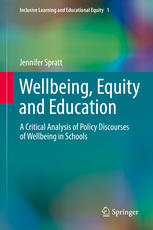

Most ebook files are in PDF format, so you can easily read them using various software such as Foxit Reader or directly on the Google Chrome browser.
Some ebook files are released by publishers in other formats such as .awz, .mobi, .epub, .fb2, etc. You may need to install specific software to read these formats on mobile/PC, such as Calibre.
Please read the tutorial at this link: https://ebookbell.com/faq
We offer FREE conversion to the popular formats you request; however, this may take some time. Therefore, right after payment, please email us, and we will try to provide the service as quickly as possible.
For some exceptional file formats or broken links (if any), please refrain from opening any disputes. Instead, email us first, and we will try to assist within a maximum of 6 hours.
EbookBell Team

5.0
78 reviewsThis book critically examines multiple discourses of wellbeing in relation to the composite aims of schooling. Drawing from a Scottish study, the book disentangles the discursive complexity, to better understand what can happen in the name of wellbeing, and in particular, how wellbeing is linked to learning in schools. Arguing that educational discourses have been overshadowed by discourses of other groups, the book examines the political and ideological policy aims that can be supported by different discourses of wellbeing. It also uses interview data to show how teachers and policy actors accepted, or re-shaped and remodelled the policy discourses as they made sense of them in their own work.
When addressing schools’ responses to inequalities, discussions are often framed in terms of wellbeing. Yet wellbeing as a concept is poorly defined and differently understood across academic and professional disciplines such as philosophy, psychology, health promotion, and social care. Nonetheless, its universally positive connotations allow policy changes to be ushered in, unchallenged. Powerful actions can be exerted through the use of soft vocabulary as the discourse of wellbeing legitimates schools’ intervention into personal aspects of children’s lives. As educators worldwide struggle over the meaning and purpose of schooling, discourses of wellbeing can be mobilised in support of different agendas. This book demonstrates how this holds both dangers and opportunities for equality in education. Amartya Sen’s Capability Approach is used to offer a way forward in which different understandings of wellbeing can be drawn together to offer a perspective that enhances young people’s freedoms in education and their freedoms gained through education.